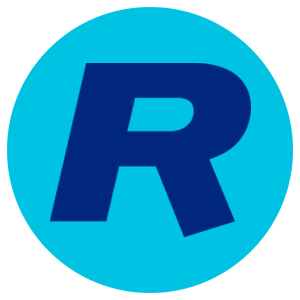- Leadership
Flipping the Learning Sequence
An innovative Rotman program focuses on context specific challenges rather than legions of leadership concepts
A question onboarding-participants to executive programs should always be asked is: ‘If the program goes as well as it possibly could, what do you want to get out of it?’
Scott Rutherford, leader of Rotman School of Management’s Accelerated Leadership Development (ALD) program, says he has always been troubled by the typical answer: ‘You know, one thing that I could actually do differently.’ Troubled because he knows that too many programs fail to home-in on the relevant application of concepts learned to participants’ specific needs.
Traditionally leadership development programs tend to take an all-inclusive approach, covering leadership concepts from Agile to Values, only concentrating on applications in a participant’s specific situation as an after-thought. And, as Rutherford observes, “If you go through all the literature of why things fail, it's generally the overgeneralization of concepts – sharing concepts which are applicable generally, leaving the participants to figure out which are relevant to them and how to tailor these to their context.”
In designing the ALD program, Rutherford has flipped the sequence so that participants start with the real-life projects and responsibilities that they feel would most benefit from their improved leadership. The structural challenges of traditional programs are avoided by embedding an application challenge at the core and by placing considerable emphasis on ‘in-work’ delivery.
We leverage the strengths of the natural and most effective environment for leadership development work: context-specific, real, on-the-job learning”
“I’ve taken the point of view of saying ‘listen, what will make this successful is if you can move the needle on yourself and your current challenges meaningfully.’” This customer-first approach assumes that the high-potential and aspirant leaders who join leadership programs already have a good sense of where and how they want to do better. So, Rutherford’s message to them is, “Let's dig deeper into that and then apply relevant concepts to your challenge…changing the tail for the dog.” At the very least by making a significant difference on the project/challenge the participant is working on there is an ROI box ticked.
It’s already worth the investment and anything further they get from ongoing leadership development, which should be a lot, is a bonus.”
To achieve success, Rutherford says his mantra is “It's not a six-day program, it's a three-month program.” The interaction between the three two-day modules of in-class study, spread over three months, with the workplace activity done by participants over the period, with phone and online support and coaching from faculty, is key. This is further emphasised by a commitment to follow up after the program.
……………………………………………………………………………………………………..
Join Scott Rutherford on Rotman School of Management’s Accelerated Leadership Development program
Next dates: Module 1: Sep 19–20; Module 2: Oct 17–18; Module 3: Nov 28–29.
Location: Toronto
……………………………………………………………………………………………………..
The all-important onboarding process involves identifying best real-time application opportunities, enrolling sponsors/mentors from the participant’s organization, telephone briefing, and some pre-work to confirm an individual customization for each participant. For the faculty this is tricky because people bring in a wide variety of challenges, or in some case don't bring in something meaningful. “With those folks we say okay, what's the context, what's the outcome you're shooting for? What would other people around this project be saying when it is successfully completed?” says Rutherford, “this help them give some specificity and some tangibility.”
The program can attract people from both bureaucratic hierarchal organizations and more entrepreneurial ones. This added variety also increases the complexity for faculty but adds to the depth of learning too. “Participants get a whole lot of insights from each other and they also get the pattern recognition of what can truly make a difference in all of these environments.”
The program is comprised of 3 distinct 'chapters' (corresponding with the 3 residential modules and carried through into the in-work application):
1. Thinking as a Leader: This chapter helps participants take a CEO perspective on their challenges to bring into their field of vision the bigger picture and systemic drivers and consequences of the work that they do. Closely related to this are the strategic principles of how Value is Created and Captured within the system by the various stakeholders. This combination of Systems and Design Thinking have been successfully taught and well received by students at Rotman for many years.
2. Acting as a Leader: This chapter extends the progress participants have made against their real and present challenges and encourages them to 'make value happen' through strategic and direct interventions that they themselves design, engineer, and implement (as well as monitor, assess and adapt). By so doing, participants will directly experience the transformative shift from acting as role in a hierarchy to acting as a self-empowered agent within a broader network of colleagues and other stakeholders.
3. Being a Leader: The culminating chapter helps participants go deep on their own patterns and drivers of leadership that have been exposed and experienced through the first two chapters in order to answer some fundamental questions of the purpose and motivation for their work and ongoing development. This differentiating aspect of the program is delivered within a Leadership Retreat environment that has proven critical in helping participants get to deeper level of personal insight and transformation.
The emphasis on workplace activity involves Rutherford and other faculty having regular phone conversations and online discussions with individual participants. These are strategic consultant conversations which, in addition to helping progress the work challenge, are used to discuss the personal mental challenges encountered, and to encourage participants to see the bigger picture surrounding their particular context – “Getting on the balcony is a term we use a lot,” says Rutherford.
These conversations, and those had during the modules, establishes a debriefing cycle that inspires participants to reflect and push forward, and also to engage with their mentors or sponsors at work to get feedback. This helps imbed the learning within the reality of the organization. Rotman faculty will then also follow up with the mentors and say, "Hey! By the way, what have you seen of Blogs, how has the program changed her performance? How has it helped the organization?”
................................................................................................................

Scott Rutherford is an Associate Professor of Strategic Management and the Executive Director of the Weider Foundation Leadership Development Laboratory at the Rotman School of Management, University of Toronto. Scott teaches courses within all of the school's Masters degree programs in Leadership Development, Business Problem Solving and Management Consulting. Scott also teaches within the Self Development Laboratory as core faculty.
Rotman School of Management is Canada’s leading business school and has Canada’s largest group of management faculty. It is home to some of the most innovative research institutes in the world
ARTICLES YOU MIGHT LIKE
BOOK REVIEW
Christopher Kayes explains how leaders can manage difficult emotions to lead outside their comfort zone
DEVELOPING LEADERS QUARTERLY MAGAZINE AND WEEKLY BRIEFING EMAILS


































